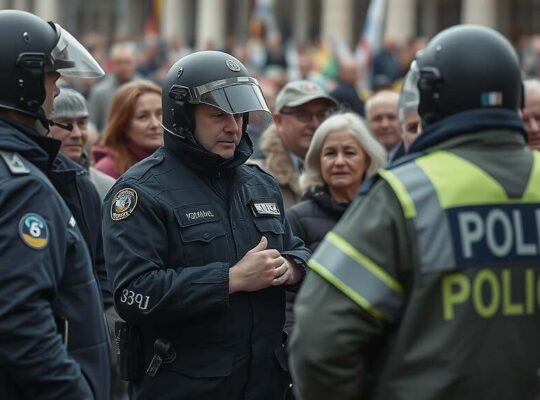Decision on Former Security Detail’s Return to Police Service Sparks Criticism
A recent ruling by the Bavarian Administrative Court of Appeal permitting the return of a former security personnel member of Charlotte Knobloch, President of the Israelitische Kultusgemeinde München und Oberbayern, has drawn sharp criticism from political figures and the federal government’s anti-antisemitism commissioner.
Felix Klein, the federal government’s commissioner on antisemitism, expressed his profound disapproval to the newspaper “Welt” stating that the individual’s alleged online statements were “extremely inhumane and thus clearly against the values of the Basic Law”. Klein emphasized the need for increased education on antisemitism and its consequences across Germany, including Bavaria.
Ludwig Spaenle, Bavaria’s own anti-antisemitism commissioner from the Christian Social Union (CSU), voiced his strong disappointment, describing it as “unbearable” for a police officer to harbor wishes of a fate akin to the Nazi era for those they are sworn to protect. Spaenle stressed the expectation that police personnel should not express or share antisemitic or racist sentiments on personal platforms.
Karl Freller, a CSU member of the Bavarian state parliament and director of the Bavarian Memorial Foundation, echoed this sentiment, calling the decision “absolutely unsatisfactory”. He argued that an individual with such a “shocking mindset” has no place within the police force.
Charlotte Knobloch herself expressed bewilderment at the court’s decision to “Welt” highlighting the crucial role of trust between those seeking protection and security forces. The Holocaust survivor and former head of the Central Council of Jews in Germany called for a greater awareness within the judiciary that antisemitism poses a threat not only to Jewish people but also to democracy and the rule of law, regardless of where it is expressed.












